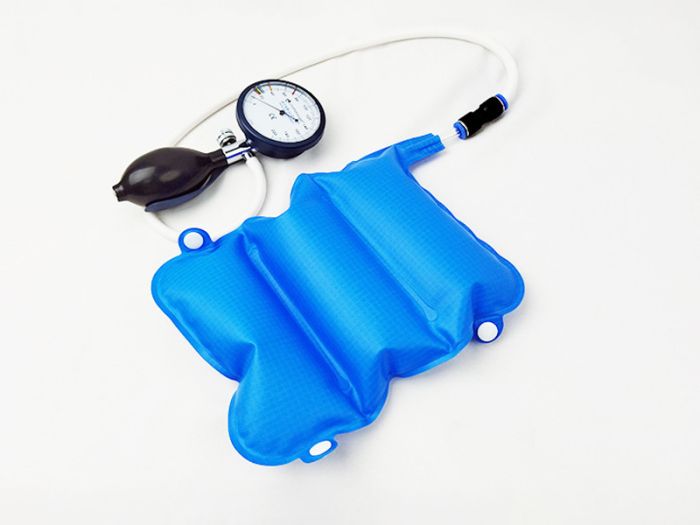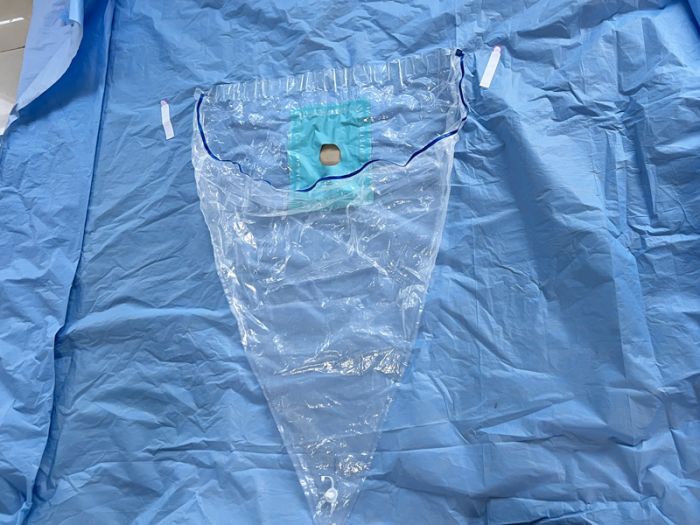Specific applications of high frequency machines in the medical industry
The specific application of high-frequency machines (also called high-frequency heat sealing machines) in the medical industry is mainly concentrated in the production and packaging of disposable medical devices. The following are some common applications:
1. Packaging of disposable syringes:
High-frequency machines are used for the packaging of syringes and can achieve aseptic sealing of the outer packaging of syringes. High-frequency electromagnetic waves are used to heat plastic film materials to quickly soften and heat-seal them, thereby ensuring that the syringes maintain a sterile environment during transportation and storage. Common packaging materials include polyethylene (PE), polyvinyl chloride (PVC), etc.
2. Packaging of infusion tubes:
Medical devices such as infusion tubes and hemodialysis tubes often need to be produced and packaged in a clean and sterile environment. High-frequency machines can effectively ensure the sealing of the packaging by heating and sealing, thereby preventing external contamination. Common materials for this process include medical polyvinyl chloride (PVC) and thermoplastic elastomers (TPE).
3. Packaging of surgical gloves:
High-frequency machines are used for the packaging of disposable surgical gloves to ensure the sealing of the gloves in the packaging bag to maintain their sterility. Usually, surgical gloves are made of materials such as polyethylene and polyvinyl chloride, which can be accurately heat-sealed by high-frequency machines to prevent the entry of air and bacteria.
4. Medical dressings and gauze wrapping:
The packaging of medical dressings, gauze and disinfection products can also be heat-sealed by high-frequency machines. These medical products are packaged into separate sterile packages through heat sealing technology to ensure their sterility before use. These packages often use heat-sealing materials such as polypropylene (PP) and polyethylene.
5. Sealing of blood transfusion bags:
The sealing of medical plastic bags such as blood transfusion bags and plasma bags is often carried out by high-frequency machines. By high-frequency heat sealing of plastic bags such as polyethylene and polyvinyl chloride, it can ensure that the bags are well sealed, prevent leakage and ensure the safety of blood or other liquids during storage.
6. Connection of medical hoses:
High-frequency machines can be used for the connection of hoses and catheters, especially for heat sealing of materials such as PVC and silicone. High-frequency machines can accurately connect the ports of hoses of different materials to ensure seamless connection and avoid leakage, meeting the high standards of the medical industry.
7. Packaging of disposable breathing masks:
The packaging of disposable breathing masks, oxygen masks, etc. is also completed by high-frequency machines. Since these masks need to be used in a sterile environment, high-frequency machines can ensure that the packaging bags of the masks are tightly sealed to maintain the hygiene and safety of the products.
8. Sealing of hemodialysis bags:
Hemodialysis bags and similar disposable medical products usually need to be produced and packaged under high cleanliness conditions. High-frequency machines can effectively heat-seal the hemodialysis bags with the outer packaging materials to ensure the safety of the dialysate and the equipment.
Advantages:
Precise heat-sealing technology: High-frequency machines can provide efficient and precise heating to ensure the sealing and sterility of medical product packaging.
Applicable to a variety of materials: It can handle multi-layer composite materials such as PVC, polyethylene, aluminum foil, etc., which makes it widely used in the medical industry.
Efficient production capacity: Compared with traditional heat-sealing equipment, high-frequency machines can complete packaging work more quickly and improve production efficiency.
The application of high-frequency machines plays a vital role in ensuring the sterility and safety of medical products, especially in the production and packaging of disposable medical products, which can ensure that the final product meets strict quality and hygiene standards.



